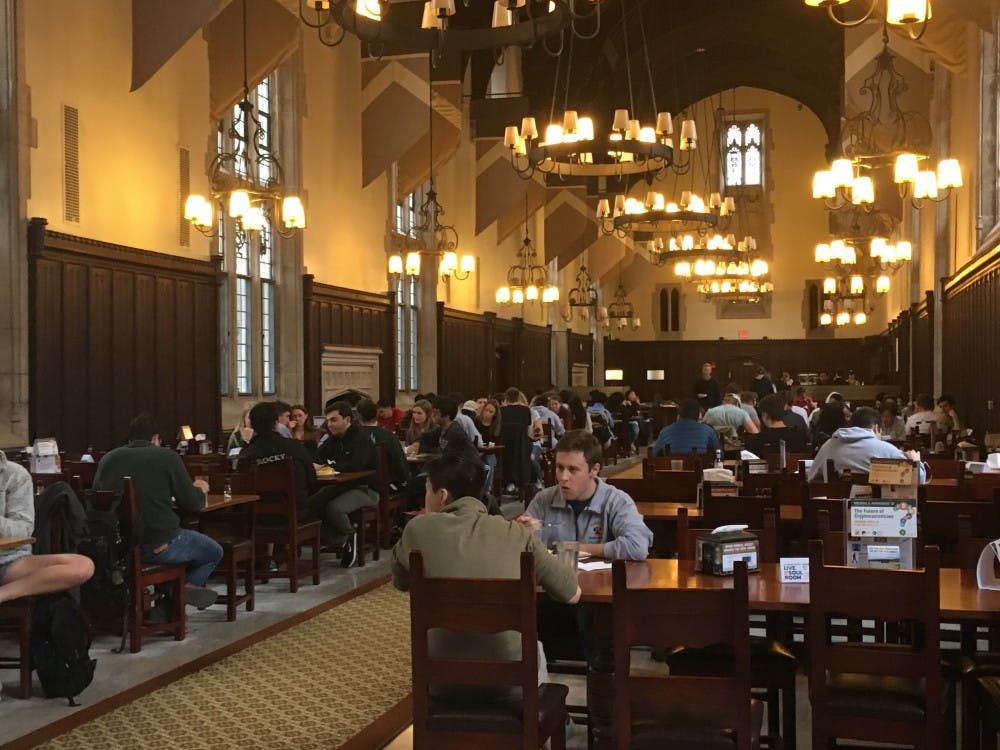From classes, to dorms, to dining halls, there is almost always a solid crowd of people just nearby. We have all experienced the rush of freshman year as we try to find and build our friend groups. Once we get settled into our Princeton experience, however, we rarely venture beyond the comfort of our selected friend group.
For one, it’s often uncomfortable to strike up a conversation with a stranger, and we often feel at risk of being a bother to those around us. I want to push back against this sentiment; talking to the strangers around us is not only proven to make you happier and more fulfilled (yes, even if you’re an introvert!), but it will also develop and enhance both your Princeton and world experiences.
Behavioral scientists Nicholas Epley and Juliana Schroeder advocate for talking to strangers. They substantiate this point with a research study on train riders. Some commuters were tasked with striking up a conversation with a stranger nearby, while others went about their business as usual. According to the study, “people reported the most positive commute in the connection condition.” In other words, those who talked with strangers reported the ride as being more pleasurable in comparison to those who did not converse or who rode in complete solitude — and this applied even to introverts.
Where can this be put into practice in our daily lives at Princeton? Talking to people on elevators is a good starting place. Despite being an extreme introvert, I have begun making a point of speaking to whoever is in the elevator with me. Even if it’s a brief “how is your day going” type of conversation, the majority of the time, both parties emerge from the elevator with a smile.
This approach can be particularly potent in a place like Princeton; it’s no secret that mental health suffers here, with Princeton rated as No. 6 among United States universities for highest levels of depression and stress. We benefit from even transient social connections, as the aforementioned study suggests, finding that “commuters tend to be happier when they talk to a stranger, regardless of how extroverted they perceived themselves to be.” Or, talk to someone while in line at the dining hall, or make a more concerted effort to smile at people and ditch the earbuds in busy areas like Frist.
And apply this beyond fellow students: talk to the janitorial staff who clean your building in the morning, ask how dining hall workers are doing, make light conversation with your Lyft driver. Often, these people have incredible life experiences that can engender change in your own perspective or outlook. This can be applicable beyond Princeton campus residents as well. Smile and make eye contact with the homeless in NYC, ask your Starbucks barista how her day is going, and offer to help the confused-looking couple wandering down campus.
Of course, I’m not advocating for striking up deep conversations with any person you happen upon — there is a line between a friendly exchange and intrusion or unwanted attention. In any case, acknowledgment is a good first step, and sometimes a quick greeting or a smile can go a long way.
Beyond boosting happiness, connecting with those around us is core to the Princeton experience. Academics, extracurriculars, and athletics are important, but Princeton is ultimately made by its people. Some of the best experiences are gleaned from taking time to know the worldviews of the diverse group around us. Not only does it bring more joy to all parties when we force ourselves to be more outgoing, but it helps with personal development.

In finding genuine pleasure in others, we become better listeners and more empathetic in our day-to-day life and in our future workplace. These skills are immeasurable, and taking that first step to start a quick conversation lays a foundation for better communication skills and a more inclusive outlook. It’s surprising how much you can learn about a person in a 30-second conversation.
Emma Treadway is a sophomore from Cincinnati, Ohio. She can be reached at emmalt@princeton.edu.









